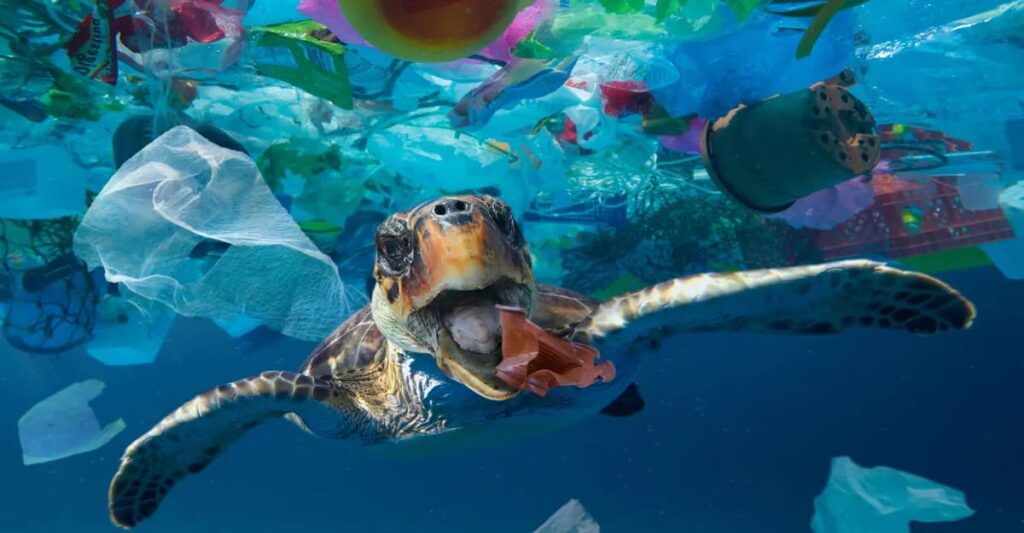

Oceans are around 70% of the surface of our planet. Seas and seas get polluted through a large amount of waste thrown into the sea. Humans will create such pollution in the seas. Waste items can be trashed into the sea. Sea pollution causes danger to human health and the ecosystem. Ocean pollution is a mixture of waste items like mercury, plastic waste, petroleum waste, agricultural runoff, biological waste, etc. These contain more toxins than aquatic creatures.
Covering approximately 70% of our planet’s surface, the sea plays a vital role in sustaining life on Earth. However, the increasing rate of marine pollution, primarily caused by human activities, poses a significant threat to these vast bodies of water and the diverse ecosystems they support.
Nowadays more and more products are manufactured and waste items are coming to sea. Which causes harmful effects on humans and sea creatures. When we eat seafood it contains more toxins and may cause diseases. Toxins such as dementia, amnesia, or other neurological damage may cause death also.
Marine pollution
Today’s world is facing one of the biggest problems, marine pollution. Water gets polluted mainly in the ocean and seas. This includes throwing plastics and disposable waste materials that may cause water to get polluted. Some plastic does not float into the sea. It will be deep into the sea. So aquatic animals will be affected and may cause some diseases which lead to sea animals dying.
Marine pollution is a complex mixture of harmful substances such as mercury, plastic waste, petroleum byproducts, agricultural runoff, and biological waste. These pollutants contain toxins that pose a significant threat to aquatic life. With the rise in product manufacturing, the amount of waste finding its way into our seas is increasing at an alarming rate.
Causes of ocean pollution
Ocean pollution may begin on land and be caused by humans. During the time of rain or snow pollutants move from the ground into the sea. When water flows, the road into the sea takes the oil and all pollutants into the sea. Through the manufacturing of plants, some areas release more chemicals and toxic waste into the sea. Sewage waste is released into the sea and gets polluted as well and plastic products are used in the sea as trash. Oil spills may occur on ships. When crude oil spills occur it is difficult to clean up.
Marine pollution originates from various sources. During rainfall or snowfall, pollutants from the land are carried into the oceans. Industrial plants often release chemicals and toxic waste into the water bodies. Additionally, sewage waste and plastic products are discarded into the sea, contributing to pollution. Oil spills from ships also add to the problem, with crude oil being particularly challenging to clean up.
Effects on ocean pollution
Sea animals are affected by ocean pollution. Aquatic animals get more diseases and effects from plastic waste. Some of the creatures are eating plastic waste coming into the sea. When oil spills occur sea bird feathers are full of oil. They may not be able to fly or feed their young ones.
Crude oil also causes animals to change their behavior and they are unable to reproduce. Excess nitrogen and phosphorus in seawater cause oxygen depletion. A low level of oxygen in the sea may lead to the death of animals. Such as penguins, dolphins, whales, and sharks. The pollution in the sea may affect human health. Small organisms eat toxins and they are eaten by large predators. So that toxins will be contaminated in human tissue. It causes health effects and birth defects.
Marine pollution has devastating effects on sea animals. Many creatures ingest plastic waste, mistaking it for food. Oil spills coat the feathers of sea birds, rendering them unable to fly or feed their young ones. Crude oil can also alter the behavior of animals and affect their reproduction.
Excess nitrogen and phosphorus in seawater can lead to oxygen depletion, causing death in animals such as penguins, dolphins, whales, and sharks. The toxins from pollution accumulate in small organisms and move up the food chain to larger predators. When humans consume these contaminated organisms, they risk health effects and birth defects.
Conclusion
Oceans and seas get polluted in many ways. Plastic waste decreases marine pollution by 80%. Water enters the sea yearly. It will be dangerous to seabirds, fish, and mammals. They are not able to survive in the sea due to pollution. Humans are the biggest cause of pollution. Throwing all waste materials into the sea causes more and more pollution. This pollution affects not only sea creatures but is also dangerous to humans. It affects human lives and the entire ecosystem.
Marine pollution is a pressing issue that needs immediate attention. Reducing plastic waste could decrease marine pollution by 80%. However, humans remain the biggest contributors to this problem. The waste we discard not only pollutes our seas but also poses a significant threat to marine life and human health. It’s crucial that we understand the impact of our actions on the environment and take steps towards sustainable living for the health of our planet
